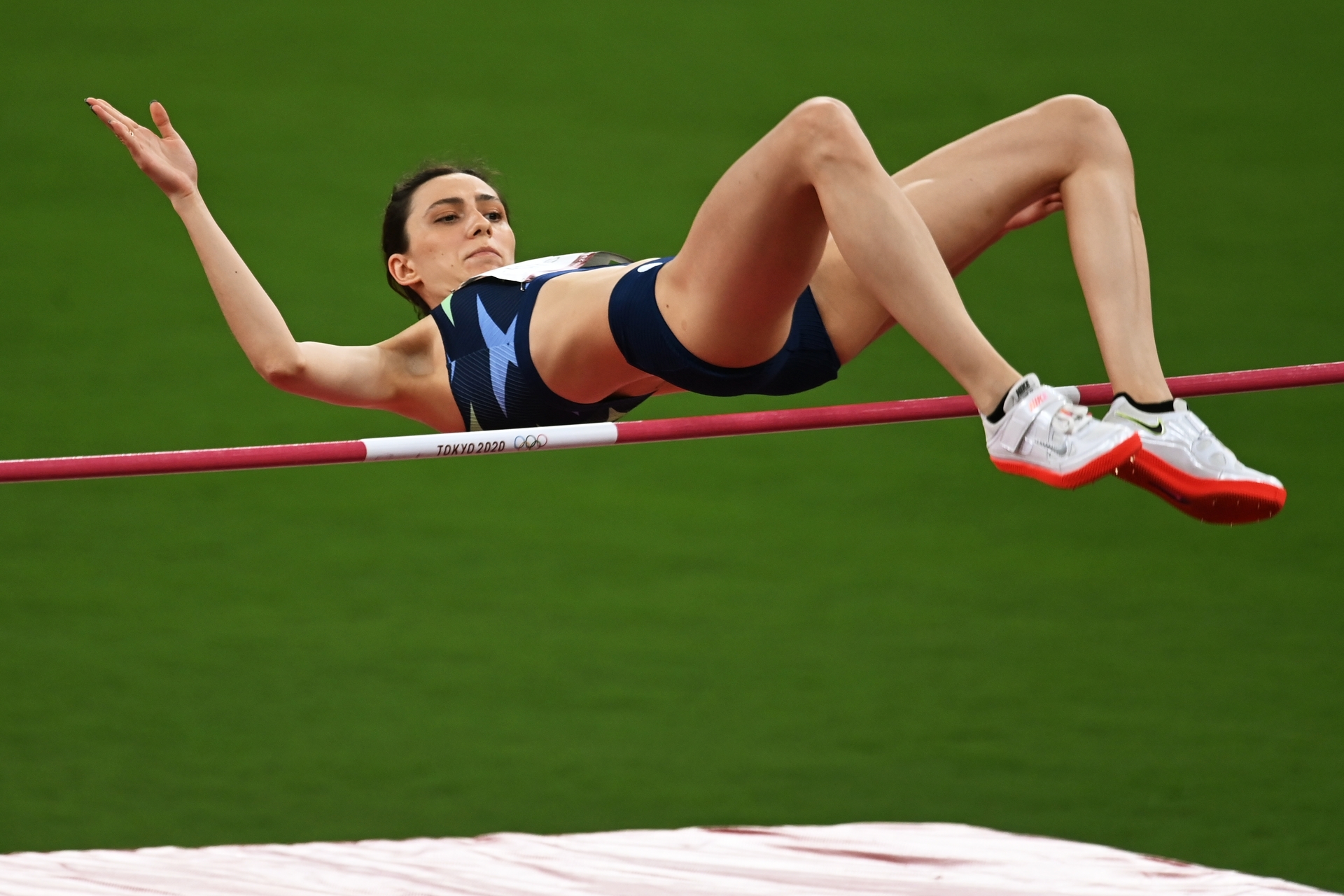The debut of the three-time world champion in athletics at the Olympic Games is a kind of sports oxymoron that is difficult to imagine in real life.
After all, if an athlete so often became the best on the planet, then she cannot but have a chance to at least perform at the main starts of the four-year period.
In the history of sports, there were still several examples of such girls with a difficult sports fate - runners Silke Möller and Zabine Busch from Germany and Marion Jones and Carmelita Jeter from the USA.
The compatriot of the latter, Jessica Beard, did not wait for her Olympic chance, despite five gold medals in her collection.
But all of these athletes won some of their titles in relay races, and none of them was a three-time world champion in individual competitions by the time of their debut at the Olympic Games.
In Tokyo, one such appeared - this is the Russian high jumper Maria Lasitskene.
She missed the 2012 games without passing the national selection, and did not go to Rio de Janeiro due to the sanctions against the Russian national team.
She nevertheless got to Tokyo and was the last of the entire team, limited to ten athletes, to start the medal drawing.
Alas, by the time of her first Olympics, Lasitskene had lost her status as the undisputed favorite and leader of the women's high jump. The reason for this was the trauma experienced this summer, and the rivals who made a leap forward. First of all, we are talking about the Ukrainian Yaroslav Maguchikh. In 2019, the athlete, barely celebrating her majority, already drove Lasitskene to a height of 2.04 m at the World Championships. The next season, she shared the world leadership with her compatriot Yulia Levchenko, and in the Olympic season she became the only one who managed to fly 2.03 m.
Lasitskene arrived in Tokyo with the fourth result - she took the bar at a height of 2.00 m exactly three weeks before the Olympic final.
Above her, in addition to the Maguchikhs, American Vashti Cunningham and Australian Nicola McDermott jumped, and Kazakhstan's Nadezhda Dubovitskaya, who did not qualify at the Olympics, repeated the result of the Russian.
If before Lasitskene could afford to miss the first heights, this time she did not miss the opportunity to once again enter the sector.
She immediately took both 1.84 m and 1.89 m, having almost no time to rest, since her rivals also easily coped with these simple tests.
It was possible to take a break only at a height of 1.93 m, which the Russian woman took on the first try, and other girls who did not claim medals stormed again and again.
Height 1.96 m began to make adjustments to the placement. From the first time, it was unexpectedly taken only by another Ukrainian Irina Gerashchenko and Australian Eleanor Patterson. McDermott, Cunningham, Maguchikh and Levchenko wasted one attempt. Lasitskene could not get herself together for a long time and twice slightly touched the bar. When she was about to jump for the third time, the judges asked her to wait because of the awards ceremony. But the forced pause did not knock the mood of the three-time world champion - she performed the jump, albeit becoming only the eighth in attempts.
At 1.98 m, McDermott became the sole leader. The athlete, who had not even made her way to the finals of the world championships before, was the first to conquer this height. Lasitskene this time did not worry the fans so much and took advantage of the second attempt after Gerashchenko. The rest of the girls had to make a choice - to postpone the third jump to the next height or still do it now, so as not to be on the brink of an abyss. On the first path, which Angelica Sidorova chose in pole vaulting, Cunningham and Levchenko went and lost. They failed their only attempt at 2.00 m. Maguchikh decided to stay and did the right thing - she took the fourth 1.98 m and could continue to perform on an equal footing with everyone.
In the next round, McDermott continued to work wonders and jumped the bar the first time.
Lasitskene and Maguchikh repeated her result, but again not immediately.
Gerashchenko dropped out of the fight, so the circle of prize-winners was determined.
All they had to do was decide who would be on what stage.
It was at this moment that the time came for Lasitskene to get out of the shadow of rivals.
After McDermott nevertheless interrupted her series of successes in the first approaches, the Russian woman immediately conquered 2.02 m.This was already a colossal claim for victory, but the Australian athlete refused to give up here too.
On the second attempt, she also took 2.02 m and not only broke her personal best, but also set a new achievement for the entire Oceania.
Maguchikh dropped to third place and was already forced to think about 2.04 m, to which she transferred the two remaining attempts.
Lasitskene would have remained in the first place if none of the girls had conquered this somewhat transcendental height.
But she did not wait for the mistakes of her rivals and set the tone herself, breaking the bar.
She has not previously achieved this in open stadiums since her third World Cup victory.
McDermott had nothing to parry, she knocked down the bar almost immediately after taking off from the ground.
Maguchih in the past conquered 2.04 m, but only on the third attempt, which now she no longer had.
Maria Lasitskene became the fourth Olympic champion from Russia in the high jump and finally won the title she deserved five years ago.
RIA News
© Grigory Sysoev

